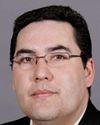I'd be very happy to answer your questions, but if I might just remind everybody why this committee is assembled on this topic, it's because the minister wrote a letter to the committee marked “urgent” and asked the committee to carry out an immediate investigation into the circumstances at Pikangikum. The minister also asked the committee to meet in the community with representatives of Pikangikum as soon as possible and report back to him.
The occasion of the minister's letter was that a report had been prepared by the Northwestern Health Unit. I think the report is being translated and should be before you soon, if it's not already.
This is an independent report by doctors and public health professionals who travelled to Pikangikum on different occasions. They reported back as to the conditions they found, and in the report you will see that there was a high incidence of gastrointestinal, skin, urinary tract, eye, and ear infections, and lice infestations. The doctors reported that these were caused by neglect of the community's infrastructure—its water and sewer systems.
The doctors reported back—these are very experienced people who have been to reserves throughout northern Ontario, including Kashechewan—that the conditions witnessed at Pikangikum were the worst they had seen in the region, that health damage had already occurred, and that there was a high risk of more damage.
That's why we're here, because the minister asked you to look into this. With great interest, I read the public session of this committee in which officials from the Department of Indian Affairs appeared before you. I also read Mr. Howsam's remarks with great interest, where he said that things are very difficult, that it's very complicated, and that there are many reasons.
Mr. Valley asked him when the water would be fixed, and Mr. Howsam provided you no answer, no date—not 2010, 2012.... It's all very complicated; it's a big problem.
I think the committee has to ask itself if this is a satisfactory answer. This community faced some challenges 12 years ago, in 1995, and it was placed in co-management. It then made fantastic progress. It had a deficit of some million dollars. It cut all of the salaries—these are not people of great means—and it paid back the million dollars. It made terrific progress over that period.
The community had plans for a school, which it had worked up. The community had contracted for a road, and with its own funds built a road to the community—without the department's help. It worked up the big bureaucratic structure to produce the appropriate water and sewer plant by itself—without the department's help. This was bid, and the bids came in under what was in the capital plan.
Then the community was placed in third-party management in 2001, in circumstances the Federal Court called “patently unreasonable”, and which the Auditor General criticized. During the period it was in third-party management—some four years—all of these projects stopped. The department had complete control of the projects, but no progress was made. When the first nation had control, all of the projects were worked. When the department had control, nothing happened. Things stopped, and the result of it was this public health crisis, which is now before you.
I think you have to ask yourselves if it is true that it's just all very complicated and difficult, and everybody at Pikangikum is to blame, as Mr. Howsam is telling you, or is there something else going on? And is this something else perhaps typical of the responsibilities that engage this community day to day?
The minister has asked you to go to Pikangikum to carry out an immediate investigation, to go as soon as possible, and his letter is marked “urgent”.
Mr. Roger is bringing you an invitation from the chief, the council, and the elders asking you to come. The Pikangikum First Nation people, the 2,200 people, support what the minister has done. They think it's a good idea. They think you should travel there and see first-hand, with your own eyes.
The minister has asked you to hold hearings and investigations. The people of Pikangikum think that's a good idea. They support what the minister has done. They think that's a good way to deal with it, so that you can see with your own eyes what is going on there in this unfolding public health crisis that is putting the lives of babies and 2,200 people at risk.








